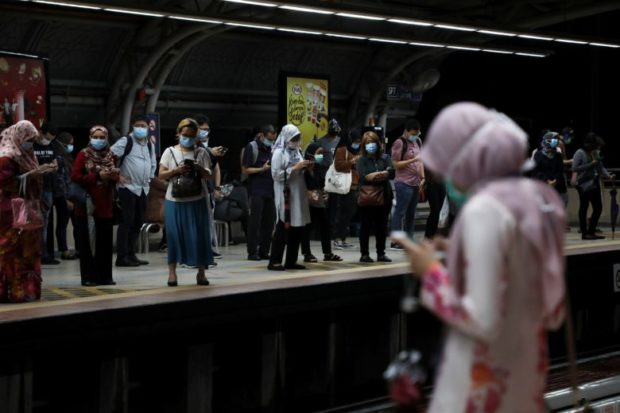
Interstate travel has been allowed since June 10 but many remain wary of travelling amid a pandemic. REUTERS via The Straits Times/Asia News Network
KUALA LUMPUR — Ms Melati Hashim allocates about RM20,000 (S$6,550) a year for overseas holidays, but the travel restrictions due to the Covid-19 pandemic have seen her splurge with that budget in other ways.
The 31-year-old insurance agent said she now purchases things she would have never considered before, as a consolation for not being able to travel.
“I use the money to buy things I normally find ‘wasteful’. The most ridiculous thing I’ve bought so far is a hairstyler, which cost RM2,100, and some make-up,” she told The Straits Times.
“I thought of getting a new car too, since mine is super old, but that would mean having to commit to a five- or seven-year hire purchase loan. The amount would most definitely take a huge chunk out of my travelling fund.
“So, I decided to just dine at some of the restaurants I’ve always wanted to try, and also got myself a brand new iPhone 11 Pro Max to replace my seven-year-old phone,” she said.
Malaysians’ love for travel has seen both outbound and domestic tourism grow steadily over the past years. In 2019, residents here spent RM44.8 billion on holidays abroad, compared to RM31.1 billion in 2015.
Domestic tourism expenditure was even higher, at RM92.6 billion last year.
Malaysia remains in its recovery phase of its movement control order (MCO) until Dec 31, during which social and economic activities have been mostly allowed to resume with safe measures adhered to.
Although interstate travel in Malaysia has been allowed since June 10, many holidaymakers remain wary of travelling amid a pandemic.
The country’s borders have been shut to international travellers since March, and those allowed to fly into the country must undergo a mandatory 14-day quarantine.
Prime Minister Muhyiddin Yassin said on Sept 15 that Malaysia will not be rushing to reopen its borders as the nation tries to curb transmission of the coronavirus.
Unable to scratch their travel itches, would-be holidaymakers have dipped into their travel funds to instead indulge various whims since their movements were limited during the lockdown imposed on March 18.
People that The Straits Times spoke to shared that they have dipped into their travel funds to instead buy anything from portable swimming pools and picnic tarps for outdoor activities with the kids, to fancy bejewelled face masks and extravagant trifles like a gold Tiffany & Co paperclip-shaped bookmark.
Freelance writer and avid traveller Hajar Hakim said she splurged on entertainment, besides local holidays.
“I bought things during the MCO that I would not have bought otherwise. I bought a Nintendo Switch for the kids, and I just bought an Android projector for my son because I don’t want him to watch Netflix or YouTube on the phone, tablet or television, as I heard the projector is better for the eyes,” said the 42-year-old mother-of-two.
“I also bought a deep freezer, pressure cooker and steamboat grill,” she said.
An uptick in domestic spend has helped soften a Covid-induced retail slump.
Retail sales plummeted 30.5 per cent in the month of April, but shot up 30.5 per cent in May when the economy reopened.
While trade has been on an upward trend on a monthly basis, even July’s 7.1 per cent improvement from June’s sales represents a 3.8 per cent year-on-year decline, according to data from the Department of Statistics Malaysia.
The quarter from April to June was described as a “bloodbath” for retailers and the worst quarterly result in Malaysia’s history by Retail Group Malaysia in an industry report released in September.
There are bright spots, nonetheless.
According to Malaysia’s central bank, Malaysians spent RM10.2 billion domestically via credit card in July this year, nearly doubled from RM5.3 billion three months earlier in April. This also shows that the level of credit card spending has returned to almost the same level seen before Covid-19 last year.
A survey by global market research platform Ipsos found that almost half of Malaysians have increased online purchases during the pandemic, especially for food.
Car sales also saw positive growth, with July’s 1.7 per cent growth year on year, showing a rebound from June’s 4.5 per cent decline.
Perodua reported 23,203 cars sold in July – triple its May sales, while Proton’s July sales figure was the highest in eight years. The two local brands are the most popular makes in Malaysia.
Asked if she sees herself rechanneling her expenditure to travel, Ms Melati said: “I actually prefer to splurge on holidays than shopping, but since there’s no sign that Covid-19 is going away anytime soon, maybe I’d just continue to treat myself like this.”